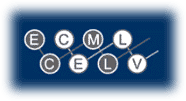
Leading Edge Developments
Mary Rose
![]()
Assuring quality in the teaching and learning process is most effective when the teachers themselves are engaged fully in the review, critical analysis, reshaping and improving of this process. Increasingly, institutions are seeking ways to build capacity to enable this to happen.
There is now a strong movement in the United Kingdom to explore and promote initiatives which develop teacher-learners who are confident and competent in these processes. This work is rooted in evidence - informed practice, school-based enquiry, research and development.
The importance of a research informed profession is recognised and education leaders are keen to develop strategies for collaboration between schools and for the dissemination of best practice to effect knowledge transformation. The following initiatives provide examples of recent developments:
School Based Consortia
A major three year initiative organised by the Teacher Training Agency
(TTA) and jointly funded with the Centre for British Teachers (CfBT) has
just completed its reporting stage. Four School Based Research Consortia
were established to explore how research and evidence can contribute to
teaching and raising standards of achievement:
The Leeds Consortium
6 primary schools, a university and a local education authority (LEA)
Research focus: Improving teaching and learning through professional
growth
The Manchester and Salford Consortium
6 primary schools, two universities and 2 LEAs
Research focus: Improving pupils' speaking and listening
Norwich Area Schools Consortium
6 secondary schools, 1 special school, a university and an LEA
Research focus: Overcoming disaffection
North East School Based Research Consortia
6 secondary schools, 3 LEAs and a university
Research focus: Understanding and improving pupils' thinking skills
At the end of the three years the Consortium reports and evaluations highlighted the following outcomes (School Based Research Consortium Initiative P Cordingley and M Bell)
- improvements in teacher self-confidence
- the development of a sense of creativity about teaching and learning
- improvements in teachers' ability and willingness to exercise professional judgement, if necessary against the grain of orthodoxy
- a greater capacity for self questioning
- the development of a shared language for talking about teaching and learning processes
- the development of a strong and widespread interest in talking about teaching and learning with other colleagues in the school
- an interest and enjoyment of exploring the nature of teaching and learning processes between schools
- an increased ability to question and appraise the research of others
- the development of skills in observing and analysing teaching and learning
These outcomes indicate the tremendous gains to be made when teachers are able to work in this way.
The National College for School Leadership (NCSL) has been at the forefront of developments to support the transformation of practice through building capacity for the development of enabling leadership in individual schools.
The launch of the first national cohort of thirty nine Networked Learning Communities (NLC) from September 2002 offers a powerful tool for transforming practice. A Network Learning Community is a group of schools working with other partners to:
- raise standards by improving the learning of pupils and staff, and school-to-school learning
- develop leadership for learning by developing and harnessing the leadership potential of a wide range of people
- build capacity for growth and continuous improvement by schools developing evidence, informed practice and sharing and continuing resources.
Further information about this work may be found on the website www.ncsl.org.uk/nlc.
The International Learning and Research Centre, the first of its kind in the country, an independent Centre, established in May 2001 and funded through grants and sponsorship, is co-ordinating a cross phase NLC across 2 LEAs in the South West in the first national cohort of networked learning communities. This NLC, the EXCEL network (Excellence through Collaboration and Enabling Leadership), consists of 4 primary schools, 2 secondary schools, a University and the International Learning and Research Centre.
Features of this network:
- a crossphase network - to be extended to include further secondary and primary schools towards the end of the first year
- diverse school cultures and different settings, both urban and rural, in two adjoining LEAs
- leadership and learning investigated through the focus on Languages and Literacy, pupils' learning styles, cross curricular work, ICT, assessment for learning strategies and transition between phases
- leadership density to be developed within the network through enabling peer partnerships
- school-based enquiry teams linked across the network, engaging pupils fully as co-researchers
- extending the existing international partnerships to enable joint trans-national school-based investigations and leadership developments
The purpose of the International Learning and Research Centre is to support schools, within its locality and beyond, in improving the quality of teaching and learning through school-based research and enquiry promoted throughout innovative national and international projects. Its core work is in leadership, languages and literacy. Identifying and multiplying best practice and enabling staff to work reflectively and creatively are key functions of the research strategy.
The Centre, led and managed by the Senior Adviser for Research and Development who has a full time secondment from South Gloucestershire LEA, has a research team of Headteachers, Senior Teachers and Teacher Researchers. These personnel have release time or part-time secondments to work on research and development projects locally, nationally and internationally. These include a twenty eight school transnational project in France, Italy and the United Kingdom funded by the European Commission, a modern foreign languages (MFL) curriculum research project for the Qualifications and Curriculum Authority (QCA), a research and development project to investigate common approaches to the teaching of English and MFL in primary and secondary schools and promoting pupil participation by consulting pupils about their learning experiences. Further information about the work of the Centre may be found on the website www.ellnet.org.
The Department for Education and Skills has, from September 2002, established an Innovation Unit within the Standards and Effectiveness Unit. This unit will support innovative and diverse practice. For further information visit www.standards.dfes.gov.uk/innovation-unit.
